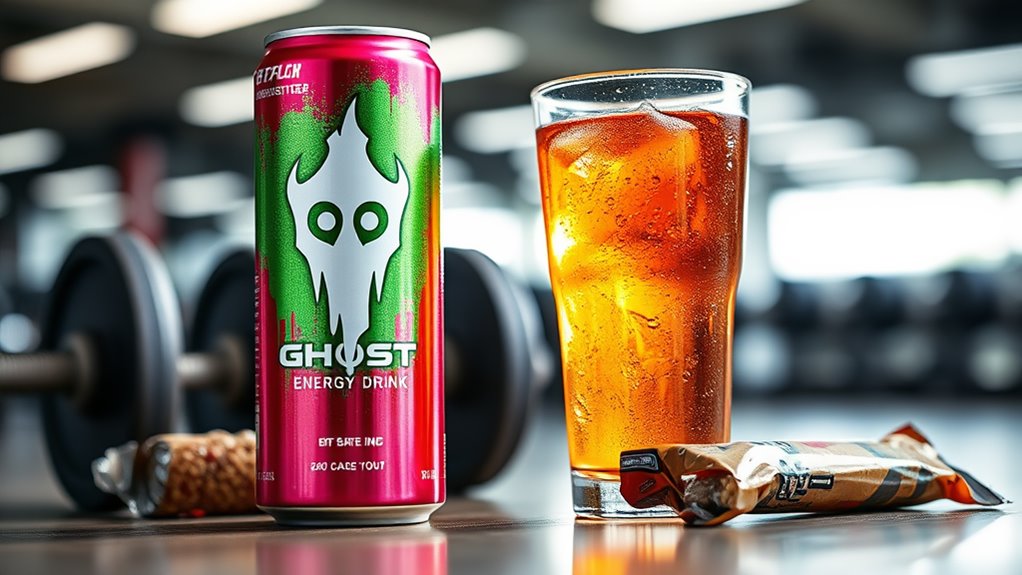
Ghost Energy Drinks can pose health risks, especially due to their high caffeine content. With 200 mg of caffeine per can, you may experience jitters, increased heart rate, or sleep disturbances, particularly if you're sensitive to caffeine. They also act as diuretics, increasing dehydration risk, especially during physical activities. While they provide B vitamins and are low in calories, the potential for dependence and withdrawal should not be overlooked. Discover more about their nutritional value and safety factors.
Ghost Energy Drinks have gained popularity in the crowded energy drink market, appealing to those seeking a boost without the sugar and artificial additives found in many competitors. With a formulation that boasts ingredients like natural caffeine, taurine, and acetyl-L-carnitine HCl, these drinks aim to enhance both physical and mental performance. Each can contains 200 mg of caffeine, which can provide a significant energy lift. However, the high caffeine content raises several health concerns that you should take into account.
One of the primary risks associated with Ghost Energy Drinks is their caffeine level. Consuming 200 mg in a single serving approaches the FDA's daily limit of 400 mg for most adults. Exceeding this limit can lead to symptoms like jitters, increased heart rate, and sleep disturbances. If you're sensitive to caffeine, even this amount can cause discomfort. Additionally, excessive caffeine can elevate blood pressure, posing risks for individuals with pre-existing cardiovascular conditions.
Caution is advised with Ghost Energy Drinks due to their high caffeine content, which can lead to jitters and increased heart rate.
Another aspect to reflect on is hydration. Caffeine acts as a diuretic, which can increase the risk of dehydration, especially if you're not drinking enough water. This could be particularly concerning during physical activity, where proper hydration is vital. If you're consuming Ghost Energy Drinks, you'll need to balance your intake with adequate fluid consumption to avoid dehydration.
While Ghost promotes transparency with its ingredient list and the absence of sugar and artificial colors, you must acknowledge that energy drinks can create a cycle of dependence. Relying on these drinks for energy can lead to withdrawal symptoms when you're not consuming them. This overreliance may mask underlying issues related to diet or sleep, as quick energy sources can often sidestep the need for balanced nutrition.
Pregnant or nursing women should exercise caution as well. The caffeine and other stimulants present in Ghost Energy Drinks aren't recommended for these groups due to potential health risks. Additionally, children should avoid energy drinks altogether, given their lower tolerance for caffeine.
On the positive side, each can of Ghost Energy Drinks is low in calories, gluten-free, and vegan-friendly. With 100% of the daily values for several B vitamins, it can provide some nutritional benefits. However, this doesn't negate the potential risks associated with high caffeine intake and the possibility of adverse effects.
Conclusion
In conclusion, while Ghost Energy Drinks offer a boost of energy and focus, they also contain high caffeine levels—about 200 mg per can, which is similar to two cups of coffee. This can lead to potential side effects like jitteriness or increased heart rate, especially for those sensitive to caffeine. Moderation is key; understanding your own tolerance can help you enjoy these drinks safely without adverse effects. Always stay informed and choose wisely.



